
Starting June 1st, 2023 Our warehouse fee will be $0.65/cubic foot per month
In effort to lower the warehouse storage fee during inflation, we have went narrow aisle racking.This construction took us four months but the project is finally completed. With narrow aisle racking, we are able to drop storage by 24%.We as partners will go through this inflation together.
10/26/2025
An FTZ warehouse isn’t just another storage option, it’s what separates companies that thrive in global trade from those crushed by import taxes and slow cash flow. Every dollar locked in duties is capital you could be using to grow. This guide from Worldcraft Logistics shows how the right Free Trade Zone (FTZ) strategy can turn customs delays, rising tariffs, and compliance stress into opportunities for significant savings and tighter supply chain control.
A FTZ warehouse short for Foreign-Trade Zone warehouse is a specialized logistics facility located in a designated customs-free zone. In the eyes of customs authorities, goods stored in an FTZ warehouse are not considered to have officially entered the country’s commerce. As a result, import duties and tariffs do not apply until the goods leave the zone and enter the domestic market.
These warehouses operate within free trade zones, also known as foreign trade zones in the United States and similar customs territories globally. Businesses use them to store, assemble, process, or distribute imported merchandise while deferring or reducing duties, taxes, and paperwork.
Unlike traditional warehouses, FTZ warehouses are managed under strict customs oversight. Every shipment entering or exiting the facility is recorded through an inventory control system and reported to authorities yet the business benefits are substantial. With the right compliance procedures, companies can legally delay paying duties or even eliminate them entirely when re-exporting goods.
This makes FTZ warehouses an essential asset for global manufacturers, importers, and supply chain professionals seeking to reduce customs costs and increase operational agility.
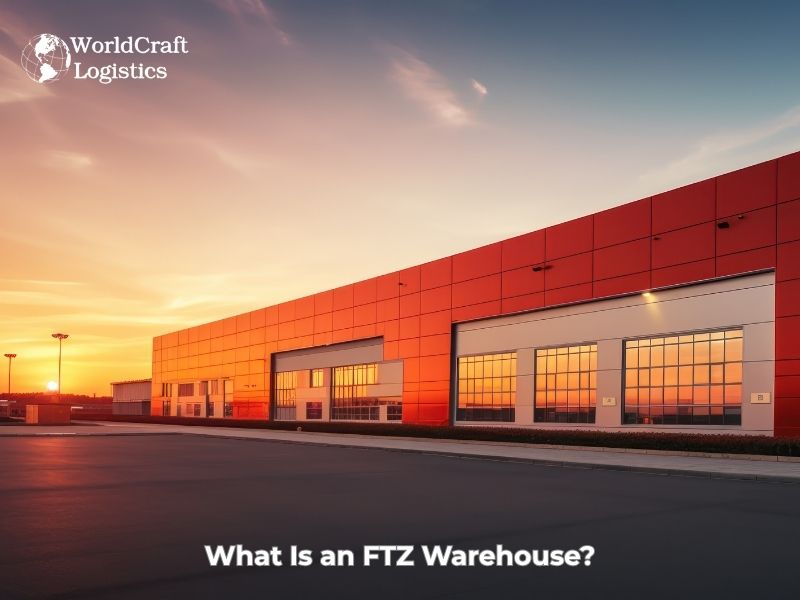
*You may be wondering, are Foreign-Trade Zones and Free Trade Zones the same thing? They are essentially the same, but Foreign-Trade Zone is the specific term used in the US (with a hyphen), while Free Trade Zone is the common name used worldwide.
In a global market reshaped by tariffs and unpredictable trade shifts, flexibility is the new currency. An FTZ warehouse gives importers exactly the ability to control when and how duties are paid, rather than letting customs dictate the pace. Instead of reacting to policy changes, companies operating within an FTZ act strategically, turning regulatory pressure into financial advantage.
Facilities positioned near major U.S. ports, like those in Long Beach, deliver a rare blend of speed and savings. Businesses can store goods closer to entry points, cut drayage costs, and release cargo into the market at the optimal time, not just when duties are due.
At Worldcraft Logistics, we understand the financial strain importers face due to rising tariffs and unpredictable trade regulations. Our FTZ warehouse in Southern California provides a real, cost-effective solution for businesses that need to manage duties, taxes, and inventory more strategically.
Our 100,000-square-foot FTZ-certified facility, located just 20 miles from the Port of Long Beach, CA, offers 6,000–7,000 pallet positions and full-service logistics support. This prime location helps companies reduce drayage costs, accelerate customs processing, and keep cargo moving efficiently through one of the busiest gateways in North America.
Worldcraft Logistics’ foreign trade zone warehouse service allows importers to:
Defer import duties and taxes until cargo exits the FTZ for U.S. distribution.
Ease cash flow pressure by storing goods tax-free inside the zone.
Meet supplier MOQs (Minimum Order Quantities) without incurring immediate customs costs.
Consolidate shipments and streamline operations to lower administrative expenses.
Few logistics providers in the United States operate a true FTZ-certified warehouse, making this service both rare and valuable. For companies looking to stay competitive during ongoing trade challenges, Worldcraft Logistics’ FTZ warehouse offers a proven way to protect cash flow, minimize risk, and strengthen supply chain efficiency.
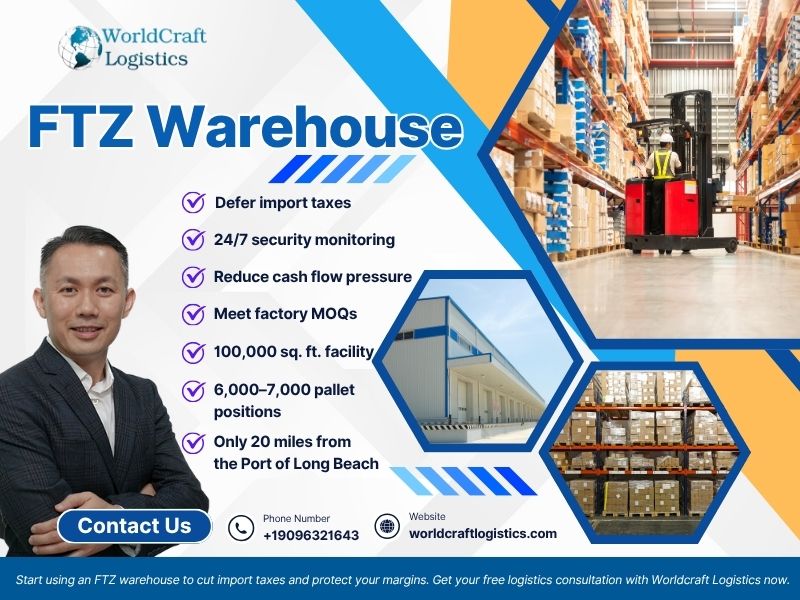
>>> Read more: 3PL Warehouse & Logistics Near Port of Long Beach, CA
An FTZ warehouse operates as a secured zone under customs supervision, where imported goods can be stored, handled, or processed without triggering immediate duty payments. The core advantage lies in its customs treatment: the warehouse is considered “outside” the national customs territory for tariff purposes even though it’s physically located within the country. Here’s how the process works:
When shipments arrive at the port of entry, instead of filing a standard customs entry, importers file an FTZ admission using forms like CBP Form 214 in the U.S. This allows the merchandise to be transferred directly to the FTZ warehouse without paying duties or taxes upfront.
Once inside the FTZ warehouse, goods are tracked by a customs-compliant inventory control system (ICS). The system records all product movements, storage status, and processing actions. This real-time oversight is essential for maintaining compliance and audit readiness.
Businesses can conduct a wide range of activities inside the foreign trade zone warehouse from simple storage to advanced operations like repackaging, testing, labeling, or full assembly and manufacturing. These value-added activities do not alter the customs status of the goods.
When goods leave the FTZ warehouse for domestic sale, the importer submits a formal customs entry and pays the applicable duties at that point. However, if the goods are re-exported from the FTZ, no duties are paid at all, effectively eliminating tariff exposure for export-oriented inventory.
Many FTZ operators consolidate multiple shipments into a single weekly customs entry. This reduces Merchandise Processing Fees (MPF), paperwork, and administrative costs, a major benefit for high-volume shippers.
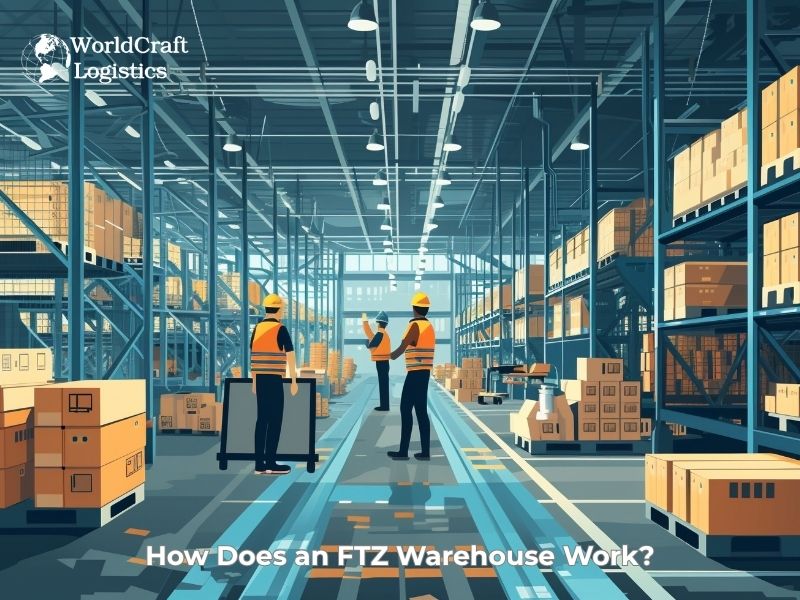
In essence, a well-managed ftz warehouse allows companies to defer customs duties, streamline operations, and strategically handle inventory without locking up capital in upfront tax payments. The flexibility it offers is especially valuable in industries with complex global sourcing, changing duty rates, or export-heavy strategies.
>>> This article is for you: Smart Warehouse: Meaning, Benefits, Tools & Operation Process
The most prominent advantage of an FTZ warehouse is the ability to delay import duties until goods leave the zone for domestic use. This deferral frees up working capital that would otherwise be tied up in taxes and tariffs. In many cases, companies may also qualify to pay a lower duty rate on finished goods instead of their components—a strategy known as tariff inversion.
If goods stored in an FTZ warehouse are re-exported to another country, no duties or taxes are ever paid. For businesses with large outbound shipments, this represents a major savings opportunity and allows international inventory to flow through the U.S. or other FTZ-enabled countries without customs cost exposure.
Companies using an FTZ warehouse can consolidate all shipments received during a week into one customs entry filing. This dramatically reduces Merchandise Processing Fees (MPF) and lowers administrative overhead, particularly for high-volume importers.
Unlike bonded warehouses, FTZ warehouses allow operations such as repackaging, assembly, labeling, testing, and even full-scale manufacturing—provided these are approved by customs authorities. These in-zone activities allow firms to customize products for specific markets without triggering immediate duty liabilities.
FTZ warehouses do not impose statutory time limits on how long goods can be stored. This makes them ideal for long-term inventory staging, seasonal stockpiling, or situations where importers await regulatory clearance (e.g., FDA or USDA approval) before distribution.
Operating within an FTZ warehouse enhances compliance by centralizing customs oversight and improving traceability. Facilities must meet strict security and inventory control standards, which often align with global best practices and may support C-TPAT or ISO certifications.
In many jurisdictions, goods held in an FTZ are exempt from certain state or local inventory taxes. Additionally, some foreign trade zones offer business incentives, such as reduced property taxes or access to infrastructure subsidies for companies that locate their warehouses within zone boundaries.
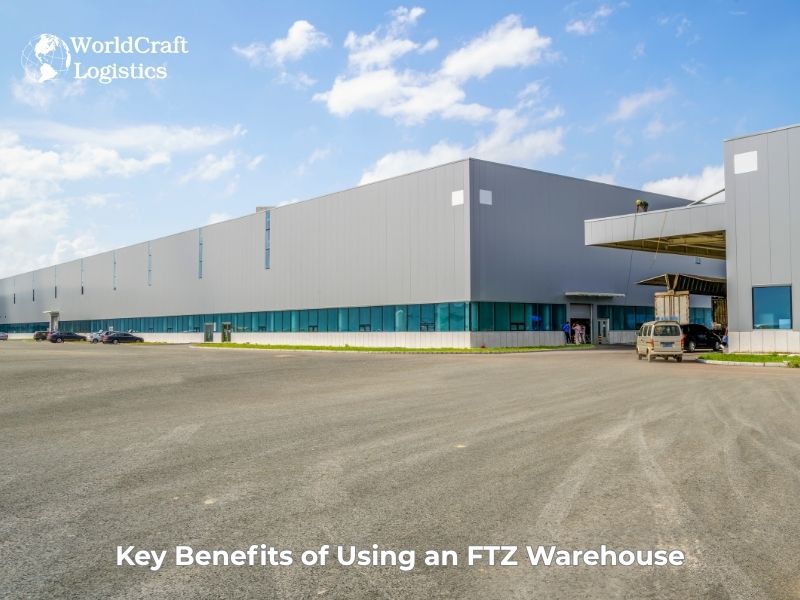
An ftz warehouse isn’t just a customs loophole it’s a strategic tool that enables importers and manufacturers to optimize duty costs, improve logistics flexibility, and strengthen operational control. For businesses engaged in global trade, especially those moving high volumes or performing in-country transformation, these benefits can be transformative.
Choosing between an FTZ warehouse and a bonded warehouse is a crucial decision for importers, exporters, and manufacturers. While both offer customs duty deferral, their functions, regulatory requirements, and strategic advantages are very different.
Below is a side-by-side comparison to help you understand the key distinctions between these two warehouse types:
Feature | FTZ Warehouse (Foreign Trade Zone) | Bonded Warehouse (Customs Bonded) |
Customs Status | Considered outside customs territory for duty purposes. | Inside customs territory, but goods are under customs control. |
Duty Payment Timing | Duties are paid only when goods enter domestic commerce. | Duties are paid at withdrawal for domestic use. |
Duty on Re-Exports | No duties paid if goods are exported from the FTZ. | Eligible for duty drawback if re-exported (requires claim process). |
Tariff Inversion Allowed? | ✅ Yes – pay duty on finished product if rate is lower than components. | ❌ No – must pay based on original imported component rates. |
Permitted Activities | Full manufacturing, repackaging, testing, labeling, kitting (requires customs approval). | Limited to storage, inspection, preservation, and minimal handling. |
Storage Time Limit | Unlimited – goods can remain indefinitely in the zone. | Typically 5 years maximum in most countries (e.g., U.S., EU). |
Weekly Entry Consolidation | ✅ Yes – file one customs entry per week (reduces fees). | ❌ No – separate entries for each shipment or withdrawal. |
Ideal Use Case | High-volume imports, manufacturing, re-exports, cost savings. | Short- to mid-term storage, moderate volume, duty deferral. |
Compliance Complexity | Higher: requires activation approval, inventory systems, audits. | Moderate: requires license, bond, customs inspections. |
Tax Incentives | Often eligible for state/local tax exemptions (varies by jurisdiction). | Typically subject to local taxes once goods are imported. |
The best option depends on your business goals:
Choose a bonded warehouse if your needs are short-term storage, simple duty postponement, or if you're handling occasional imports with minimal processing.
Choose an FTZ warehouse if you're dealing with high-volume international trade, require in-zone manufacturing, or aim to re-export goods with maximum customs and tax savings.
Both types have unique regulatory frameworks. However, the ftz warehouse offers more flexibility and long-term strategic advantages particularly for global logistics operations that involve frequent importing, exporting, and value-added services.
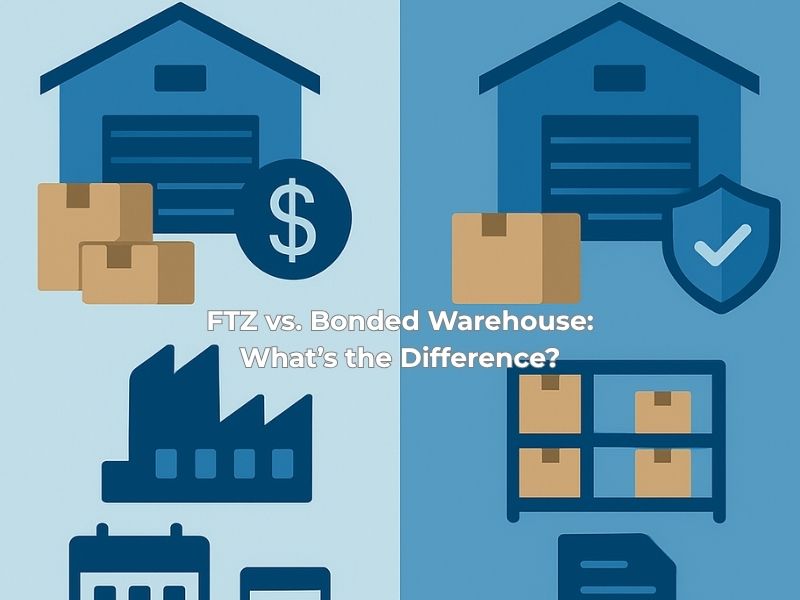
Setting up an FTZ warehouse involves a structured process governed by customs authorities. Businesses must first obtain approval for zone designation from a national or regional Free Trade Zone Board. Once the location is approved, the operator applies for customs activation, which includes submitting security plans, inventory control procedures, and compliance documentation. After inspection and approval, the facility officially operates as an FTZ warehouse, allowing the company to import goods under deferred-duty status.
Operating an ftz warehouse requires strict adherence to customs regulations. Businesses must maintain a real-time inventory control system that records every product’s entry, movement, and exit within the zone. Routine audits, precise documentation, and staff training are critical for compliance. Many companies partner with experienced logistics providers who already manage FTZ-approved facilities, reducing setup time, cost, and administrative risk while allowing faster access to trade benefits.
Need an FDA-registered warehouse that meets every compliance standard? Worldcraft Logistics provides certified storage for food, supplements, and medical products secure, climate-controlled, and fully inspected. CONTACT US
These benefits are fundamental to both the U.S. FTZ program and general international Free Trade Zone models:
Key Tax & Customs Benefit | Detailed Explanation | Relevant Regulation (U.S.) |
Duty Deferral | Customs duties and Federal Excise Taxes are deferred (postponed) until the imported goods physically leave the FTZ and enter the domestic U.S. commerce. | |
Duty Exemption | Foreign goods imported into the FTZ and subsequently re-exported out of the country are exempt from U.S. duties entirely. | |
Duty Reduction (Inverted Tariff) | Manufacturers can choose to pay the duty rate of the finished product or the duty rate of the component parts, whichever is lower. This is especially beneficial when the tariff on the finished item is less than the sum of the tariffs on its imported components. | FTZ Act and FTZ Board Rules |
Merchandise Processing Fee (MPF) Reduction | FTZ users can file a single weekly customs entry for all shipments entering U.S. commerce, instead of an entry for each shipment. Since the MPF is capped per entry, this drastically reduces the total fees paid. | CBP Entry Procedures (Weekly Entry) |
No Duties on Waste/Scrap | Any imported merchandise that is scrapped, spoiled, or results in waste during processing or manufacturing within the FTZ is not subject to duty. | CBP Regulations (Manipulation/Destruction) |
Unlimited Storage | Merchandise can be stored in an FTZ for an unlimited period of time (unlike Customs Bonded Warehouses, which have time limits). |
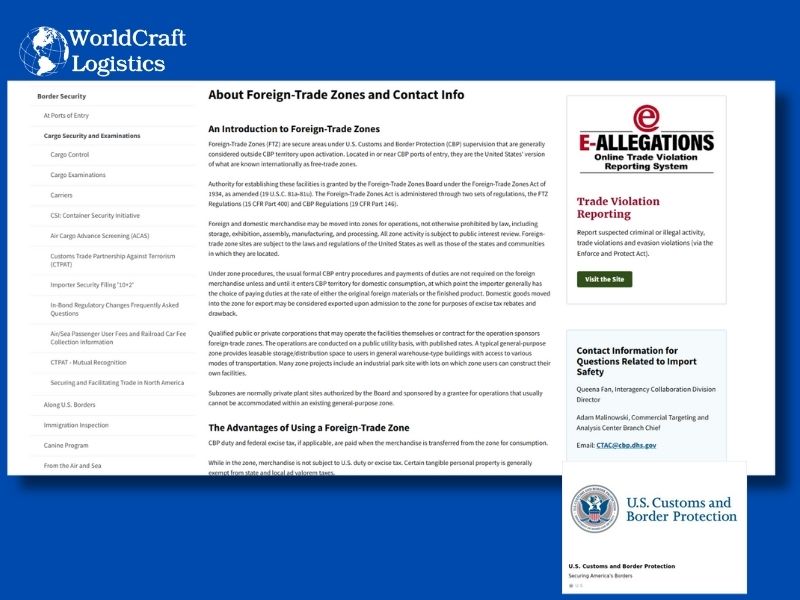
When merchandise enters a U.S. FTZ, it is assigned a status that determines its tariff treatment upon leaving the zone:
Privileged Foreign (PF) Status: The duty rate is locked in based on the condition and value of the goods at the time of admission into the FTZ. (Mandatory for goods subject to Anti-Dumping/Countervailing Duties).
Nonprivileged Foreign (NPF) Status: The duty rate is determined based on the condition and value of the goods at the time of entry into U.S. commerce. This is the preferred status for utilizing the Inverted Tariff benefit.
Domestic Status: Goods produced in the U.S. or foreign goods on which all duties and taxes have already been paid.
*Disclaimer: This information is a summary for general reference. Tax and customs regulations are highly specific and vary significantly by country. For precise legal and operational guidance, you must consult the official government sources (e.g., U.S. Customs and Border Protection or the relevant Customs Authority in the specific country) or seek advice from a qualified customs or tax professional.
Importers, exporters, and manufacturers who deal with global shipments can use FTZ warehouses. They are particularly valuable for businesses that import large volumes of goods, re-export products, or operate near major ports like Long Beach, Los Angeles, or Houston.
FTZ warehouses are usually located near major seaports, airports, and logistics hubs to support international trade. For example, Worldcraft Logistics operates a certified FTZ warehouse just 20 miles from the Port of Long Beach, California, strategically positioned to reduce drainage costs and speed up delivery.
Yes. By delaying import duties and reducing fees through weekly entry filings, an ftz warehouse improves cash flow and lowers operational costs. Companies can also save on inventory taxes and take advantage of tariff inversion when manufacturing inside the zone.
You can partner with an FTZ-certified logistics provider like Worldcraft Logistics. Their team manages customs activation, compliance, and reporting allowing your company to enjoy all FTZ benefits without handling complex administrative requirements.
One-time setup / zone activation fees: approx. US $3,000 – US $15,000+
Annual user/maintenance fees: approx. US $5,000 – US $20,000+
Storage/handling fees: US $33/month
Customs processing/entry savings: For example one provider cited reducing MPF from ~$1.9 M/year to ~$26 k/year in a scenario by consolidating shipments in an FTZ.
The cost of using an ftz warehouse depends on several factors: location, storage volume, handling frequency, and whether value-added services (like assembly or labeling) are needed. In the U.S., businesses also pay a one-time customs activation fee and an annual user fee. However, these expenses are often outweighed by savings from deferred duties, reduced processing fees, and lower inventory taxes.
(Information about price range is for reference only)
Yes. Small and mid-sized importers can gain significant advantages from foreign trade zone warehouses by partnering with a certified FTZ operator. Shared or third-party FTZ warehouses allow smaller businesses to enjoy the same duty savings and compliance benefits without bearing the full cost of establishing their own zone.
No. The FTZ model exists worldwide under various names Free Trade Zones, Special Economic Zones (SEZs), or Freeports. Countries such as China, Singapore, and the UAE have similar programs designed to attract investment, support re-export trade, and provide tax incentives. The U.S. Foreign-Trade Zone program, however, remains one of the most structured and widely used globally.
Not at all. Goods inside an ftz warehouse can be stored, inspected, or repackaged according to quality control standards. Many facilities provide clean, temperature-controlled storage and professional handling services, ensuring that products remain in top condition while awaiting domestic release or export.
Yes. FTZ warehouses help companies store critical inventory closer to distribution points without paying duties upfront. This setup gives importers more control over when to clear customs, which can help reduce backlogs and maintain consistent product availability even during port congestion or shipping disruptions.
FTZ warehouses are ideal for industries with high-duty products or global supply chains such as electronics, automotive parts, apparel, industrial machinery, and consumer goods. Any business that frequently imports components or finished products and wants to optimize tax and compliance costs can benefit from FTZ storage.
SEO
Digital Marketing/SEO Specialist
Simon Mang is an SEO and Digital Marketing expert at Wordcraft Logistics. With many years of experience in the field of digital marketing, he has shaped and built strategies to effectively promote Wordcraft Logistics' online presence. With a deep understanding of the logistics industry, I have shared more than 500 specialized articles on many different topics.
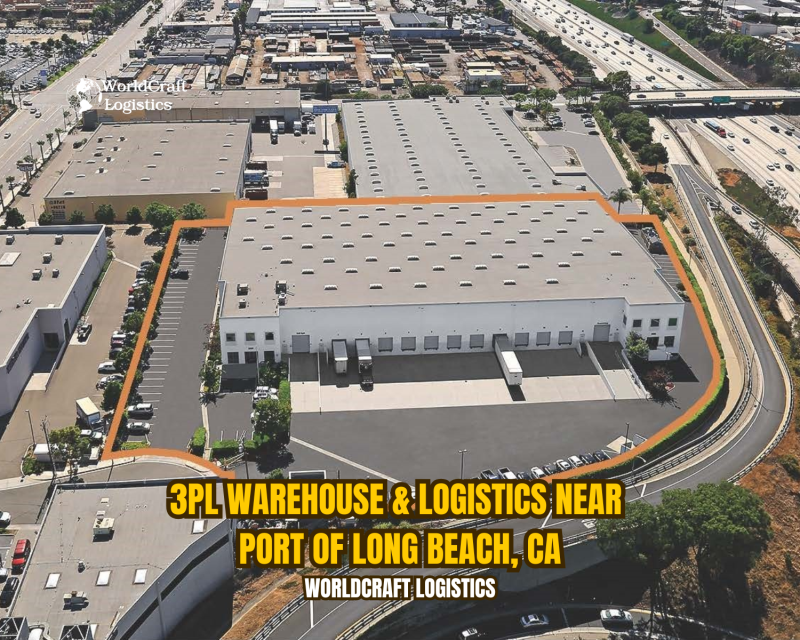
Warehouse
12/30/2024
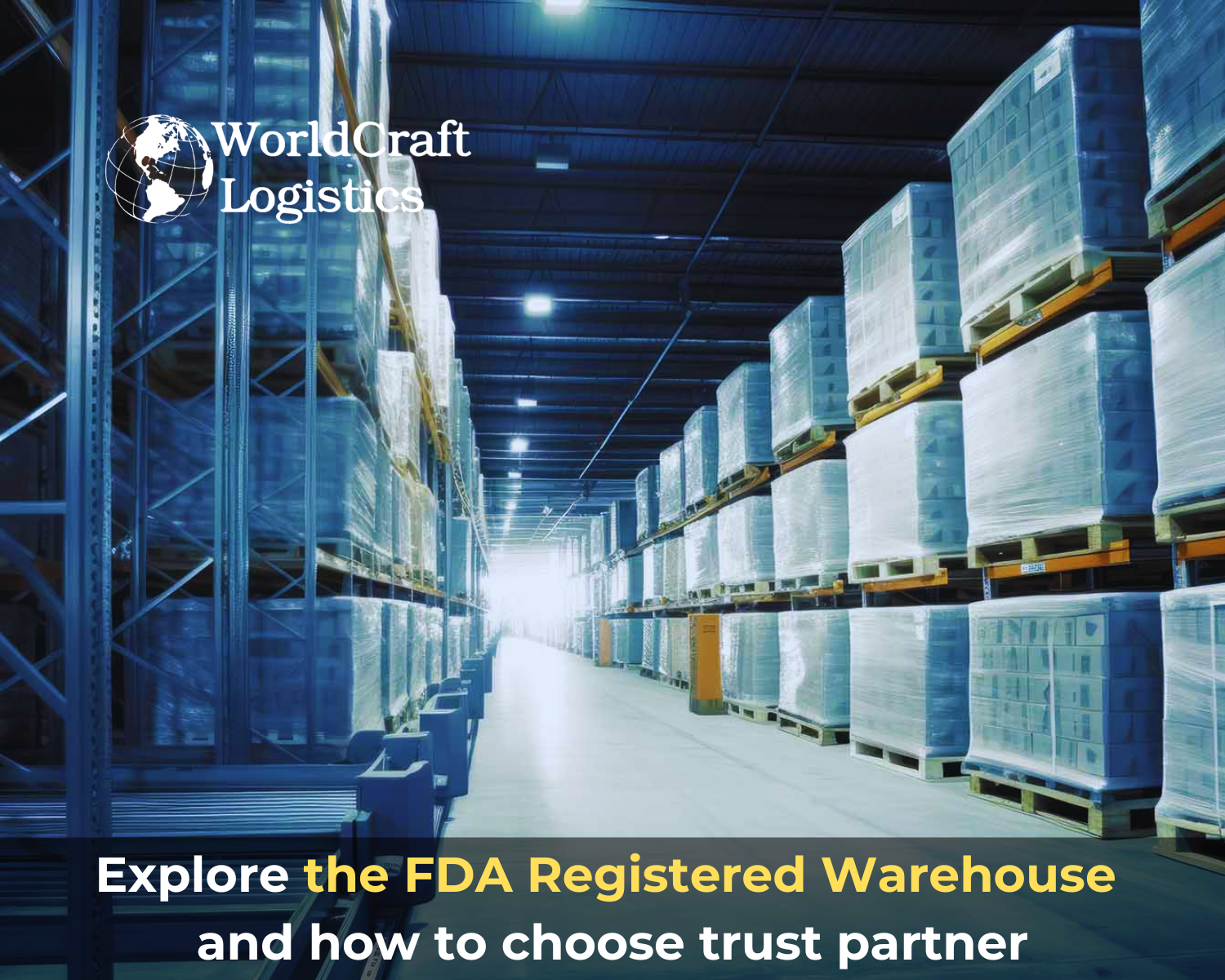
Warehouse
06/16/2024
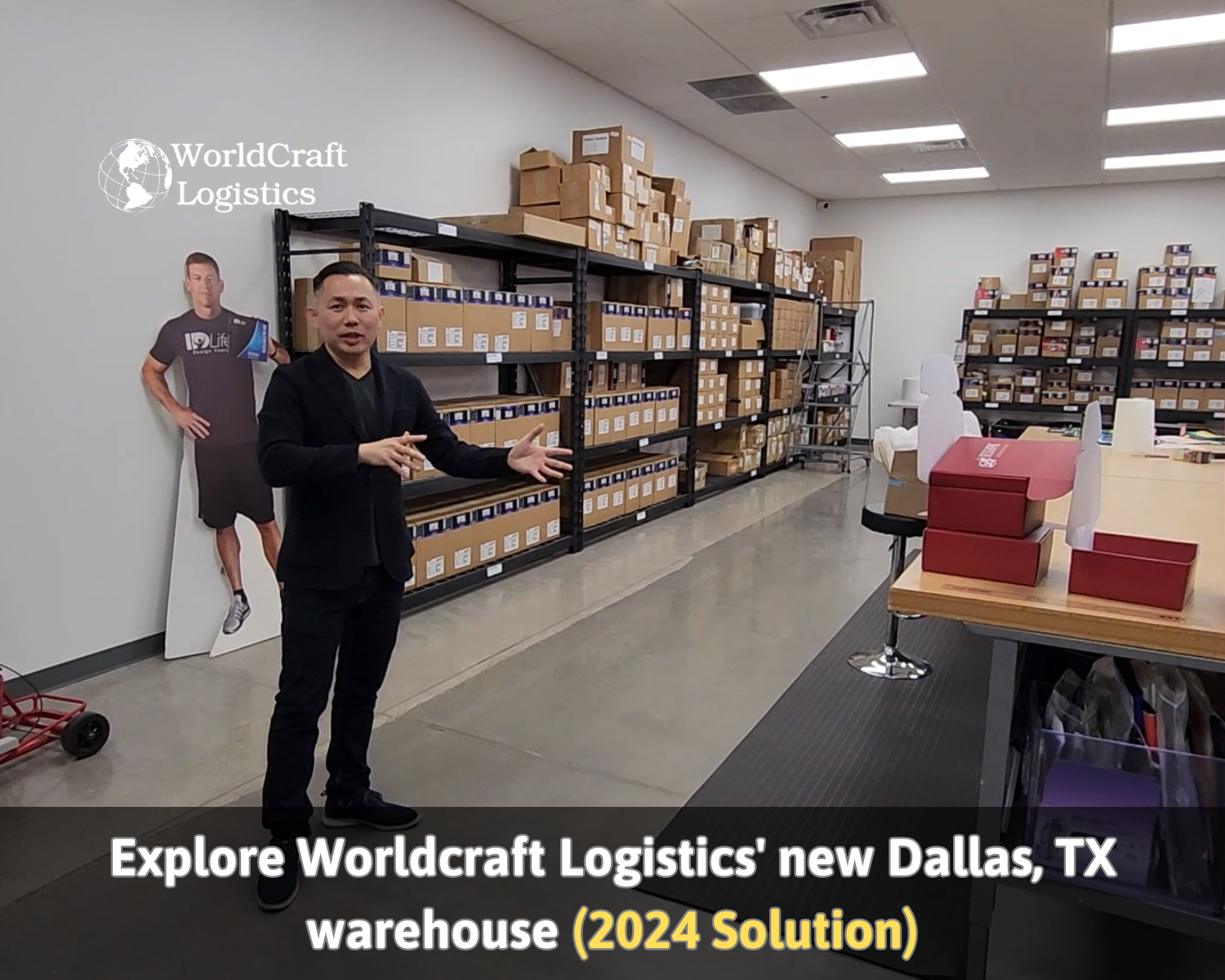
Warehouse
03/03/2024
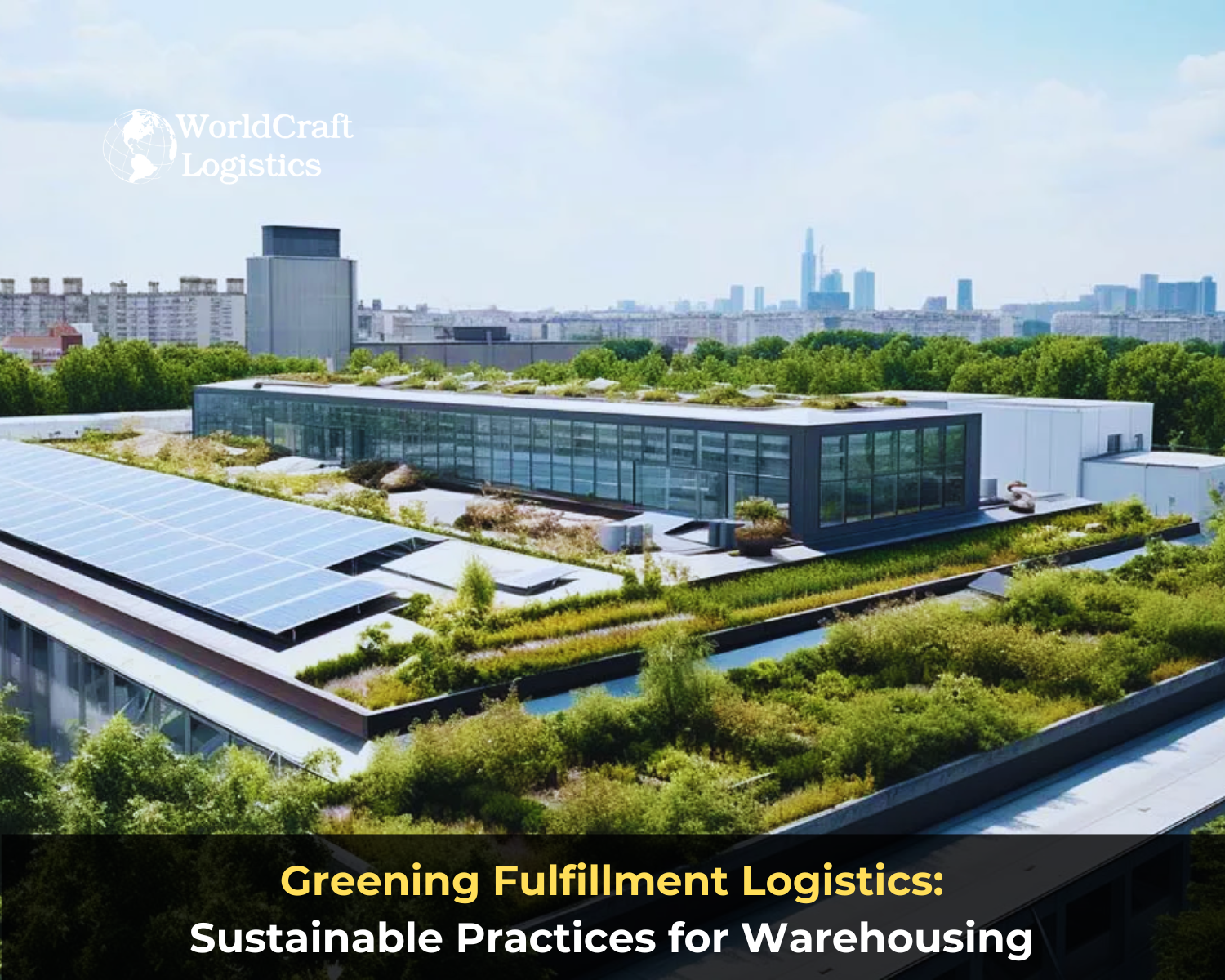
Warehouse
08/25/2024
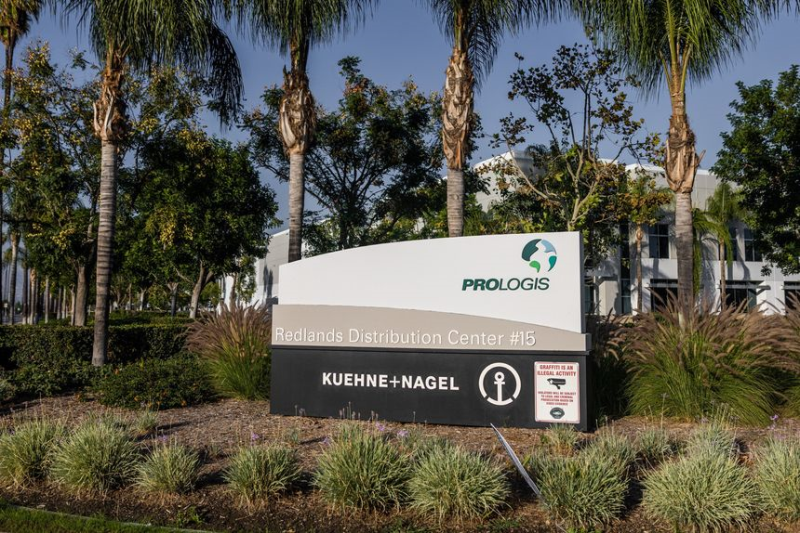
Warehouse
02/20/2023